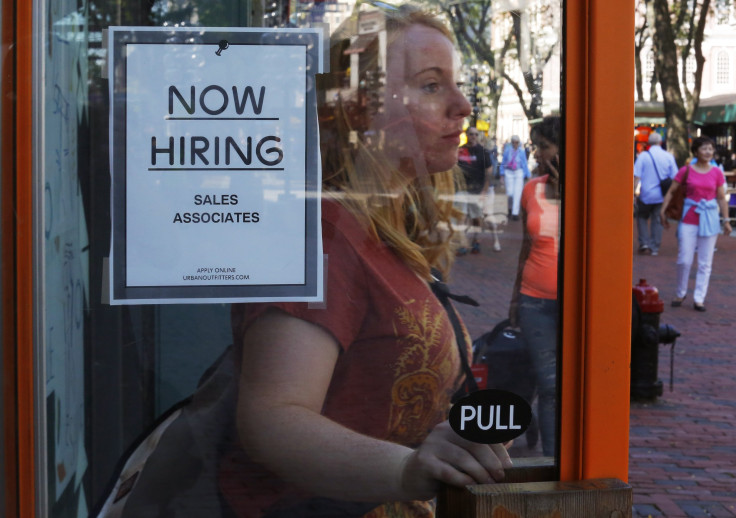Solid US Job Growth Anticipated Despite Weak Economy

(Reuters) - U.S. job growth likely remained solid in March, which should allay fears over recent economic weakness and keep the Federal Reserve on course to start raising interest rates this year.
Nonfarm payrolls probably increased 245,000 last month after rising 295,000 in February, according to a Reuters survey of economists. March would mark the 13th straight month of job gains above 200,000, the longest streak since late 1993.
The labor market has largely shrugged off a harsh winter, a buoyant dollar, weaker global demand and a now-resolved labor dispute at West Coast ports, which have combined to undermine economic activity in the first quarter.
Growth braked sharply over the past three months. Gross domestic product estimates are as low as a 0.6 percent annual pace, but the slowdown is expected to be temporary.
"If we get a number that's around consensus, then the arguments that the economy slowed for fundamental rather than weather-related reasons will disappear," said Joel Naroff, chief economist at Naroff Economic Advisors in Holland, Pennsylvania.
The Labor Department will release its March employment report at 8:30 a.m. (1230 GMT) on Friday. Most overseas financial and U.S. stock markets will be closed for the Good Friday holiday, but U.S. bond markets will open for a few hours, with the jobs data setting the tone.
The unemployment rate is forecast to hold steady at a more than 6-1/2 year low of 5.5 percent. It is now in territory that some Fed officials consider consistent with full employment.
There is a risk, however, that payroll growth could print well below expectations after a report on Wednesday showed a big step back in private hiring in March. Still, any number above 200,000 will be seen as positive for the economy.
"Job growth over the last months has been booming; some moderation is expected," said Ryan Sweet, a senior economist at Moody's Analytics in West Chester, Pennsylvania.
According to Sweet, the economy needs to create between 100,000 and 120,000 jobs a month to keep up with population growth and continue to absorb the slack in the jobs market.
Average hourly earnings will be closely watched for clues on the timing of a Fed rate hike. Average hourly earnings are expected to have increased by 0.2 percent in March, a tepid pace that could offer little fresh direction for investors.
SEPTEMBER LIFT-OFF?
With Wal-Mart and McDonald's announcing pay increases for their hourly workers, wage growth could gain some traction in the months ahead. Other companies, including TJX Cos Inc. and health insurer Aetna, also have announced wage increases.
The U.S. central bank has sounded keen to raise overnight interest rates, which it has kept near zero since December 2008. But the economy's recent softness has led investors to push back bets on the rate lift-off. Some believe the Fed could even wait until 2016.
"We expect activity to rebound, but it's probably not going to be strong or fast enough for the Fed to entertain the idea of rate hike before September," said Sam Bullard, senior economist at Wells Fargo Securities in Charlotte, North Carolina.
© Copyright IBTimes 2024. All rights reserved.





















